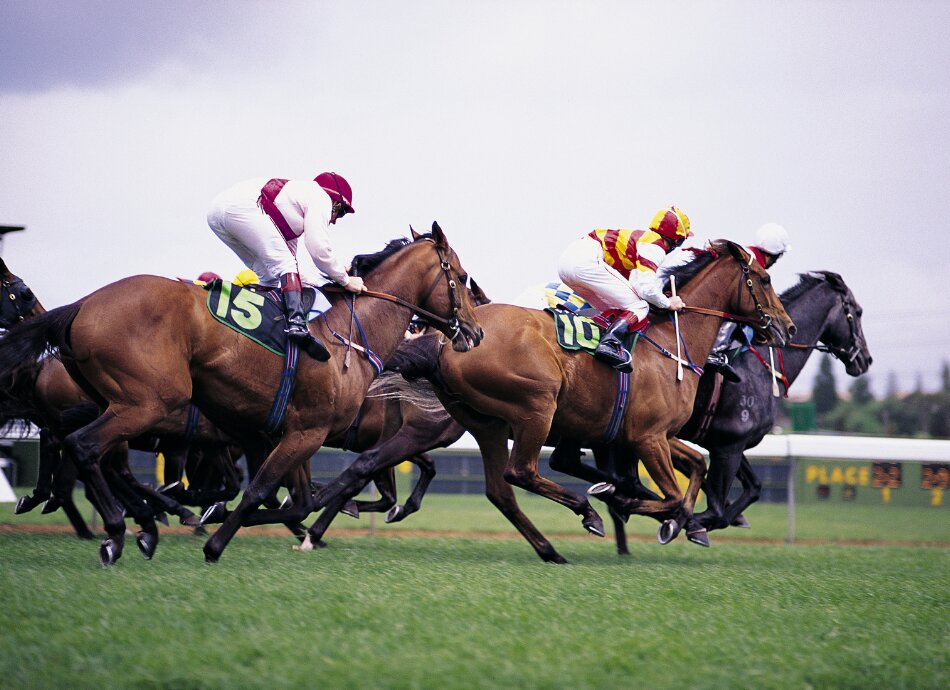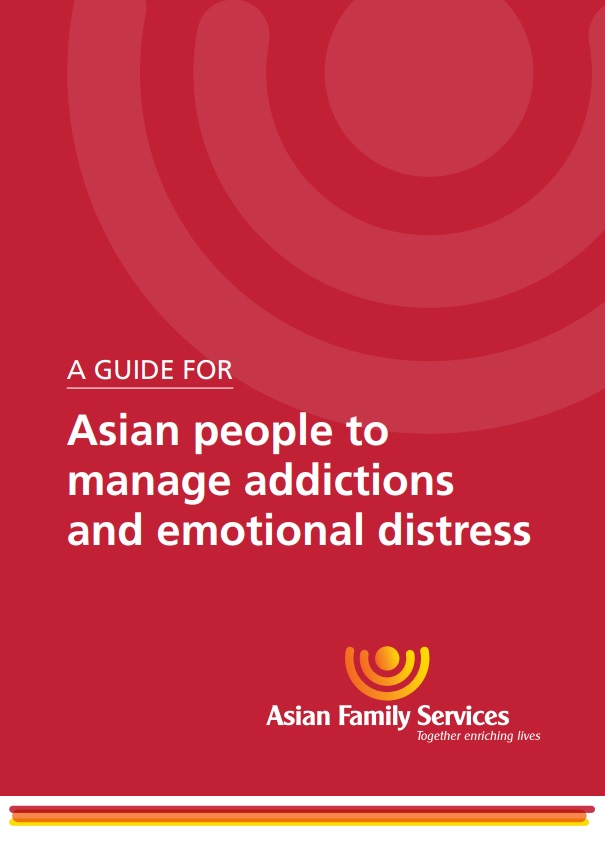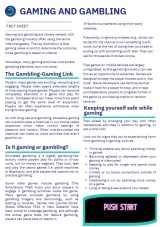If you're a frequent visitor to Healthify, why not share our site with a friend? Don't forget you can also browse Healthify without using your phone data.
Gambling overview
Key points about gambling
- Many New Zealanders participate in gambling activities, such as buying the odd Lotto ticket, playing the occasional pokies game or having a day out at the races.
- However, gambling products are designed to be addictive and can cause harm to an individual and/or their whānau, finances, work and friendships.
- All forms of gambling can cause harm. Pokie machines, Instant Kiwi scratchies, casino table games, and online gambling are particularly likely to cause harm.
- If you, or a loved one, could be experiencing harm from gambling there are many places you can go for advice and support.

Gambling is when you risk money on the outcome of a game or event that's due to chance.
Gambling is addictive so it can easily get out of hand. It can harm you, your whānau and community in many ways. It can lead to ill health, emotional and psychological distress, financial harm, poor performance at work or study, relationship disruptions and crime.
Because gambling products are designed to be addictive, it can be really hard to stop on your own. Help is free and available for you and your family.
Feeling shame, whakamā and guilt can be common when experiencing gambling harm. It can be hard to admit that it's gone past the point of 'fun', but please reach out for free and confidential support. You and your loved ones deserve to live life free of gambling harm. Find out where to get support below.
It's common to experience other mental health health challenges, such as anxiety and depression as well as gambling harm. You may need help with these too. Counselling through gambling harm support services will help you work through these challenges.
When someone is experiencing harm from their own gambling, between 5 and 10 people around them are also affected. If you are affected by someone else's gambling, help is available for you too so please reach out.
Video: Inside the brain of a gambling addict
(BBC News, UK, 2016)
- Data shows that New Zealanders spent close to $2.8 billion on gambling in the 2023/2024 year. The largest amount was spent on gaming machines outside of casinos, followed by Lotto tickets, casinos and TAB.
- Money spent on gambling dropped during 2020/2021 (COVID-19 years) but has increased again since then.
- Almost a third of New Zealanders in the New Zealand Gambling Survey (15 years of age and older) took part in online gambling in the 2023/2024 year.
- Research has found that the total burden of harm from gambling is greater than the harm caused by some long-term health conditions (eg, diabetes and osteoarthritis).
- Māori, Pacific Peoples, Asian people, young people, and people on low incomes are more likely to be affected by harmful gambling.
- While the proportion of Asian people who gamble is relatively low when compared with other population groups, those who do gamble have been more likely to experience gambling harm than non-Asian groups.
- Other risk factors can increase the likelihood of gambling harm, such as:
- financial stress from difficulty finding work
- seeing gambling as 'part of the kiwi culture'
- being disconnected from family
- earning a low income
- living in areas where some forms of gambling are more available.
The following are signs that your gambling might be causing harm. You may experience only one or many of these signs, or others that aren’t listed.
- Chasing your losses by trying to win back money you’ve already lost.
- Finding that when you stop gambling, you’ve run out of money.
- Trying to win money or borrow money to pay your debts.
- Hiding your gambling and/or the amount of money you're spending from your partner, family, relatives, friends, teachers and colleagues.
- Feeling guilty about your gambling.
- Losing track of time.
- Spending more on your gambling than you wanted to and needing to gamble with more money to get the same feeling of excitement.
- Gambling because you feel stressed or lonely.
- Feeling regret after gambling.
- Feeling depressed or anxious after a gambling session.
- Borrowing money.
- Losing interest in other activities.
- Being criticised in the past for gambling.
- Gambling having negative effects on your health, such as stress, anxiety, headaches or sleep disturbance.
- Take the Test(external link) – PGF Services Gambling Harm Support Service, NZ
- Test your gambling | Get help with your gambling(external link) Safer Gambling NZ
If you think you might be experiencing harm from gambling, seek support. Getting support can help you understand why you gamble, and understand if there are any other mental health, financial or social challenges that you can address. You can learn new strategies and tools to help you change your behaviour. Support is also available for your family, whānau and friends who have been affected by your gambling.
The stigma and shame associated with gambling harm can be a huge barrier to seeking support. It can be hard to know if someone, such as your doctor or loved one, will understand gambling as a health issue. However, you can safely talk to your healthcare provider or a counsellor or psychologist. Your healthcare provider can refer you to a counsellor, psychologist, or psychiatrist for specialist assessment and help. It's likely they will refer you to a gambling harm support service as a first step.
You can also phone one of the helplines listed below the video. On the other end of the phone are experts trained to respond to gambling harm. They are ready to listen and support you.
Video: PGF services – who we are
Find out what PGF services do and how they can help you.
Support
PGF counselling(external link) (Problem Gambling Foundation) – 0800 664 262, [email protected](external link), text 5819, live chat
Mapu Maia(external link) Pasifika Gambling Support Services – 0800 21 21 22, [email protected]
Asian Family Services(external link) (for gambling harm and other mental health challenges) – 0800 862 342, [email protected]
For services by region and Kaupapa Māori services visit Gambling services near you | Get Help with Your Gambling | Safer Gambling NZ(external link)
Gambling Helpline Aotearoa(external link) – 24 hrs, 7 days a week – 0800 654 655 or text 8006
- Maori Gambling Helpline – 0800 654 656
- Pasifika Gambling Helpline – 0800 654 657
- Youth Gambling Helpline – 0800 654 659
- Gambling Debt Helpline – 0800 654 658
While getting help is strongly recommended, you can try the following steps to help you limit the harm your gambling causes you and your loved ones.
- Limit the amount of money you spend gambling, such as by taking only cash.
- Don't use your credit card for online gambling.
- Set up automatic payments to make sure your household bills are paid.
- Put in place a self-exclusion from Pokie, TAB, Casino and Lotto venues, or your online TAB or Lotto accounts. Self-exclusion is where you agree not to gamble in the venues and operators agree to support you to leave if you do go in. Read more about self-exclusion(external link).
- Download an app such as BetBlocker or Gamban to block casino and online gambling platforms. Read more about online gambling blockers(external link).
- Don’t view gambling as a way of making money.
- Spend time doing other activities, such as spending time with your family, working, studying, taking up a hobby and socialising with others.
Apps reviewed by Healthify
You may find it useful to look at some apps designed to reduce harm from gambling.
Read a personal story(external link) about the addiction of online gambling and how they managed it.
Find real life story videos on the Safer Gambling Aotearoa(external link) site. For example, Hoani's story about how his gambling led him to steal from his wife’s workplace, and Rina's story about how she became suspicious about her husband’s behaviour and discovered he was gambling.
Video: Alfred shares his gambling story
This video is in Cantonese with English subtitles.
(Gambling Help NSW, Australia, 2013)
What are the signs of harmful gambling?(external link) Problem Gambling Foundation, NZ
How pokies work(external link) Safer Gambling, NZ
How Lotto works(external link) Safer Gambling, NZ
Safer gaming – a guide for parents(external link) Problem Gambling Foundation, NZ
Apps
Apps designed to reduce harm from gambling
Brochures
Gaming and gambling(external link) Problem Gambling Foundation, NZ
A guide for Asian people to manage addictions and emotional distress(external link) Asian Family Services, NZ, 2018 Available in the following languages: English(external link), Chinese(external link), Hindi(external link), Korean(external link)
Gambling, alcohol and drugs [PDF, 544 KB] Matua Raki & Te Pou, NZ available in the following languages: English/Simplified Chinese [PDF, 506 KB], English/Traditional Chinese [PDF, 544 KB]
Gambling harm – mental health first aid guidelines(external link) Mental Health First Aid, Australia, 2023
References
- Measuring the burden of gambling harm in NZ(external link) Ministry of Health, NZ, 2017
- Know the signs(external link) Safer Gambling, NZ
- Impact of gambling harm on Asian health(external link) Asian Family Services, NZ, 2020
- Strategy to prevent and minimise gambling harm 2025/2026 to 2027/2078(external link) Ministry of Health, NZ, 2025
- New Zealand Gambling Survey(external link) Ministry of Health, NZ
- Measuring gambling harm(external link) Ministry of Health, NZ, 2023
- What actually is harmful gambling?(external link) Problem Gambling Foundation, NZ
- Annual gambling expenditure statistics(external link) Department of Internal Affairs, NZ, updated 2025
- Exploration of the impact of gambling and problem gambling on Pacific families and communities in New Zealand(external link) Massey University, Auckland, NZ, 2013
- Online gambling in NZ – results from the 2018 Health and Lifestyles Survey(external link) Health New Zealand | Te Whatu Ora, NZ
How to talk to someone about their gambling(external link) Problem Gambling Foundation, NZ, 2020
Preventing and minimising gambling harm – practitioner's guide(external link) Ministry of Health, NZ, 2019
Strategy to prevent and minimise gambling harm 2025/26 to 2027/28 – consultation document(external link) Ministry of Health, NZ, 2024
Gambling screening questions(external link) BPAC, NZ, 2010
Gambling harm – mental health first aid guidelines(external link) Mental Health First Aid, Australia, 2023
Brochures

Asian Family Services, NZ, 2018
English, Chinese, Hindi, Korean

Gambling, alcohol and drugs Matua Raki & Te Pou, NZ
English/Simplified Chinese, English/Traditional Chinese

Gaming and gambling PGF, NZ
Credits: Healthify editorial team. Healthify is brought to you by Health Navigator Charitable Trust.
Reviewed by: Paris Collett, Health Promoter, PGF Services, Wellington
Last reviewed:






